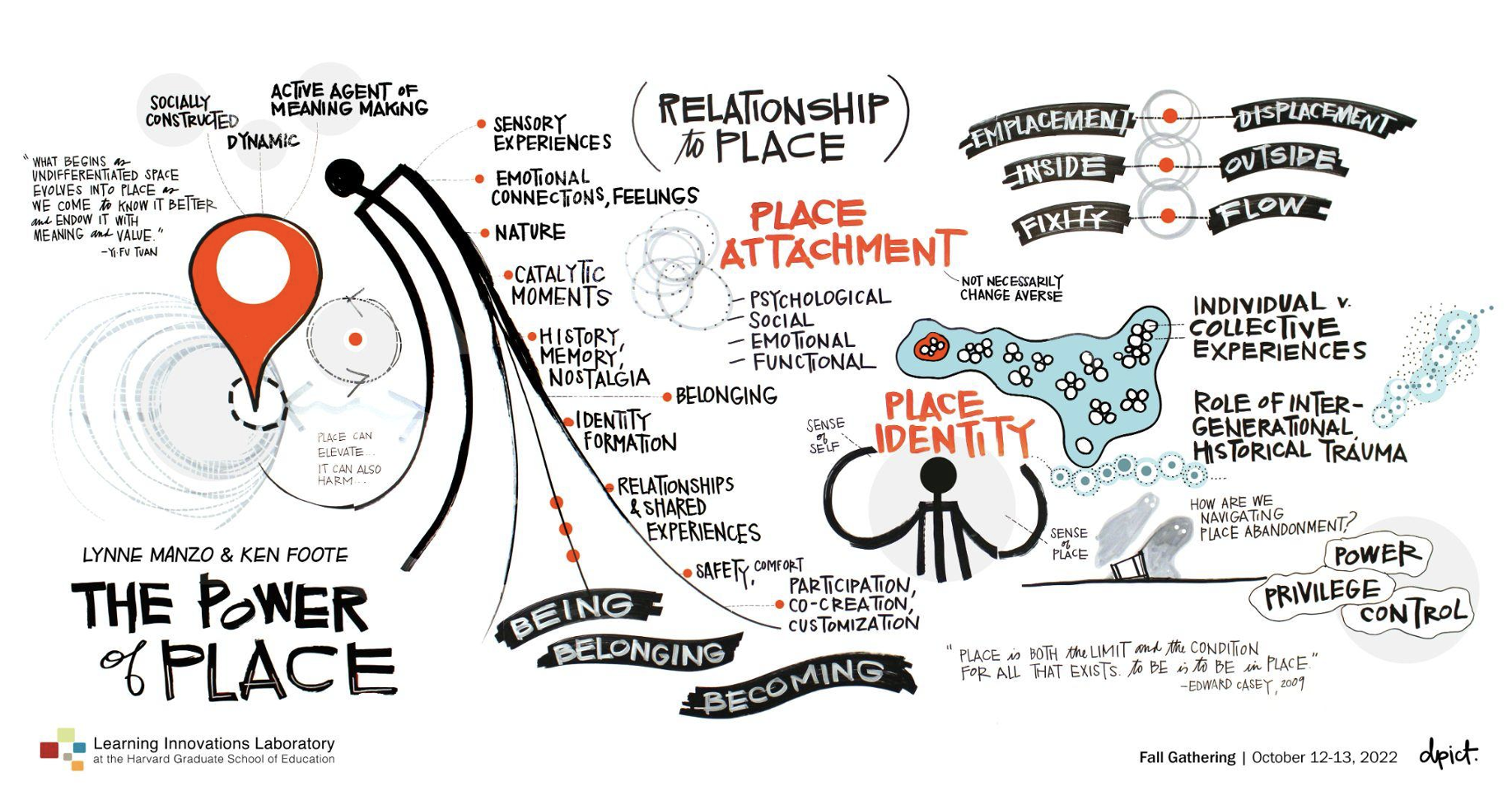Although location and place are sometimes used interchangeably, “location describes a particular point on the surface of the earth. Place on the other hand, refers to the physical and human characteristics of a spot on the map. In other words, location focuses on where: place focuses on what it is like there.” National Geographic

As we have learned from the past few years, life as we once knew it has changed. The global pandemic, social injustices, ecological concerns, and humanitarian conflicts have profoundly affected us and propelled us to reconsider the “why” and the “how” of many aspects of our lives. In our work lives, we have been experimenting and innovating with new forms of work. While our past conceptualization of work included a physical location as an anchor as well as leadership models that reflected more hierarchical organizations and cultural norms that constrained individual identity, new forms of working are emerging and evolving. During times like these – times of transformation – leaders must find ways to create possibilities. This requires leaders to disassemble current structures of various kinds (physical, cultural, digital, and more), experiment with temporary structures, and reassemble a new set of attractors that in turn shape organizational practices.
This year we hosted the summit in a virtual format. The LILA Summit featured a keynote address by Marissa King who introduced us to her research on creating more conscious connections. She was joined by 4 past LILA faculty members who shared their latest research with participants during small group conversations. In these sessions, participants exchanged ideas on how the research can inform their individual and organizational practices. The Summit offered the opportunity to meet and interact with the broader LILA community, including faculty, researchers, and current and past members to get a better sense as to who we are as a learning community and what you might experience as a member. T

Add a comment